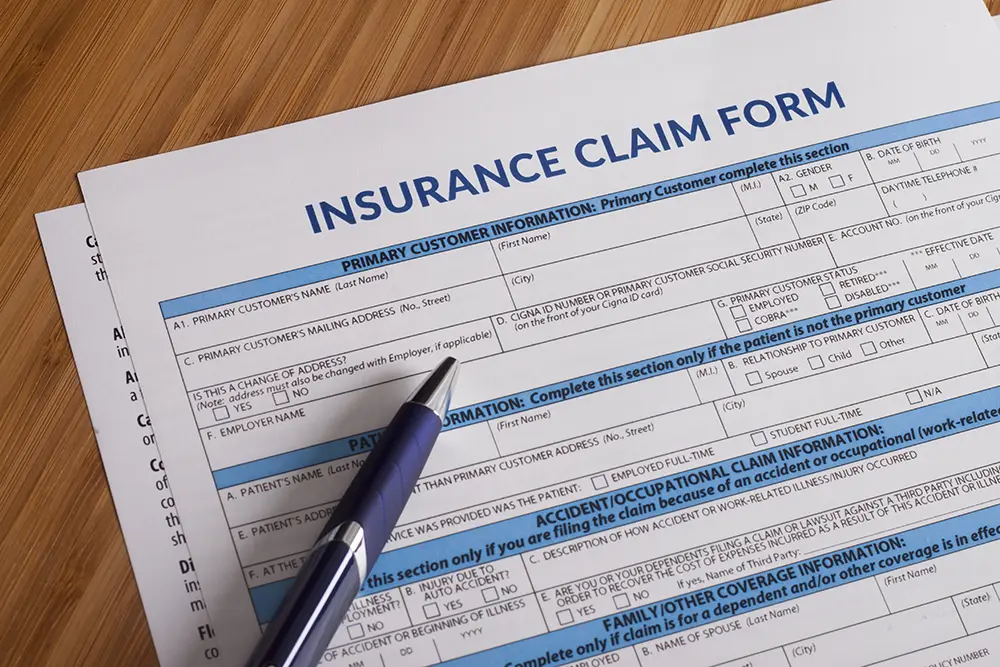To prevent insurance companies from mishandling claims, Arizona’s Unfair Claim Settlement Practices Actoutlines several rules companies must follow. The list prohibits actions like:
- Misrepresenting policy provisions
- Failing to act and communicate promptly
- Delaying a claim without evidence
- Not providing a reason for a claim denial
- Failing to conduct an investigation
- Offering a lower settlement than is reasonable
This is just a small sampling of the unfair practices that are included in the act. The point is to prevent insurance companies from acting in bad faith. Bad faith insurance refers to when companies prioritize their bottom line over their policies, engaging in tactics to frustrate, confuse, or deny accident victims the settlements they deserve.
While settling insurance claims can be a time-consuming process, an insurance company acting in good faith will investigate your claim, keep you apprised, and offer reasons for any denials or lowered settlement offers.
By contrast, if you encounter an insurance company that employs tactics that you suspect are prohibited by the act, you could have the grounds for a bad faith insurance case. Even if you aren’t sure, you can consult the attorneys at Perez Law Group, PLLC to determine if the company is acting in bad faith.
Insurance Companies Are Obligated to Try to Resolve Your Claim
The Unfair Claim Settlement Practices Act isn’t the only set of rules that can provide grounds for a case against a bad faith insurance company. The terms of a company’s own policies and contracts lay out what they are expected to do. If an insurance company doesn’t follow its own rules, whether outright or by twisting or misinterpreting policy terms, they can be held accountable.
Moreover, all legal documents carry what’s called an implied covenant of good faith and fair dealing. Cornell Law School’s Legal Information Institute (LLI) explains this rule as requiring “every party in a contract to implement the agreement as intended, not using means to undercut the purpose of the transaction.” In other words, insurance companies should try their best to settle legitimate claims, not try their best to avoid paying anyone anything. Intentions matter.
Identifying Bad Faith and Pursuing Legal Action in Arizona
Two keywords in the Unfair Claim Settlement Practices Act are “reasonably” and “promptly”—insurance companies are required to take reasonable and quick action on claims. For instance, they can’t leave you in the dark for weeks and then deny your claim without any explanation; that wouldn’t be prompt or reasonable. Asking for mountains of information just to settle your claim, drawing out the process unreasonably, also might be a sign of bad faith.
However, “prompt” and “reasonable” can be open to interpretation, and an insurance company may try to use equivocation to get away with treating you unfairly. Proving a company or company representative’s intentions and knowledge can also be challenging.
That’s where we come in. Our bad faith insurance claim lawyers can conduct an independent investigation of your case, evaluate an insurance company’s adherence to the Unfair Claim Settlement Practices Act, and build a case for a bad faith lawsuit.
Get Help from an Insurance Bad Faith Attorney at Perez Law Group, PLLC
If your claim has stalled, you feel overwhelmed with what an insurance company is asking, or you suspect your claim was denied out of hand, contact Perez Law Group, PLLC today at (602) 730-7100. We can review your case and determine if you can seek legal action against the insurance company. Arizona law protects you and so do we.
